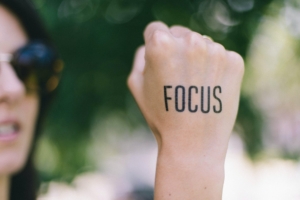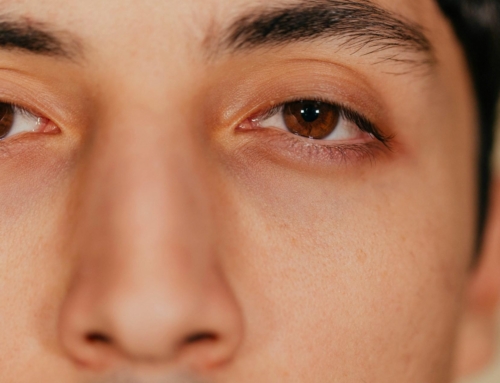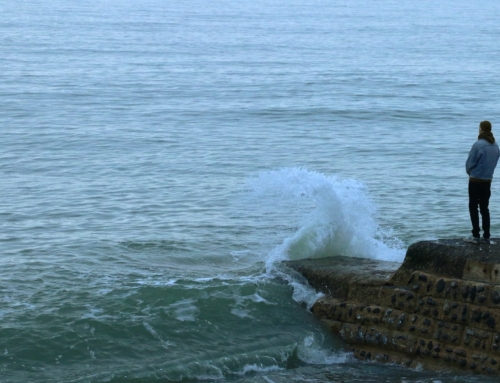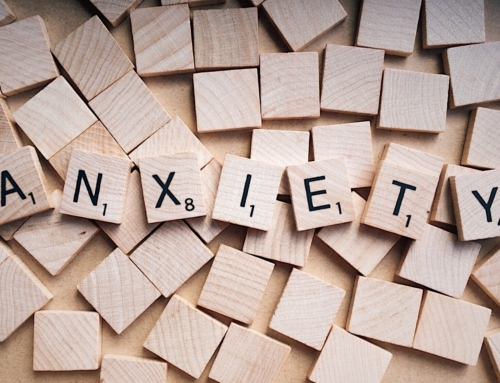It can take a lifetime to learn how to be productive despite having an attention span affected by ADHD. Most people with ADHD have to adapt to routine and repetitive schedules to be fruitful or meet goals. Sometimes, it can feel like a slog to get things done. As soon as the task ceases to be stimulating or challenging, they tend to mentally clock out and look for something that will spark interest.
On the other hand, when someone with ADHD locks into a task, they might continue doing it until they are exhausted. Their brain has latched onto the activity, and they have no way of stopping. ADHD burnout is a real thing, whether it happens as a result of obsessive focus or distracted focus.
Most people with ADHD learn things by trial and error or by simply having to adapt to environments that don’t change for them. It is challenging to have to “knuckle down” and get things done in a work or study environment with deadlines and heavy consequences for lateness.
However, there are communities of people with ADHD sharing the wealth of their lived experiences who have discovered hacks and ADHD secret weapons to cope and be productive. Having ADHD is challenging, but there are always new ways and habits you can use to make life better.
Concentration Problems
Anyone with ADHD will tell you how difficult it is to lock into a task. The ADHD brain is driven almost entirely by a quest for dopamine. If the task produces dopamine for them, they will lock in and do the task until they physically cannot do it any longer. If the task does not produce dopamine, however, they will quickly lose interest and search for something else to do.
There are two aspects to this issue: a positive and a negative one. On the positive side, having a creative brain that loves challenges and stimulation means that you will often invigorate a dull workplace with your energy. Your thirst for fun, energy, and information is contagious, and your preference for spontaneity means that you will challenge norms and old systems simply by being yourself.
The negative side of having an ADHD brain is that most productivity relies on slow, steady, repetitive progress. To meet most goals, you have to simply strap in and do the work with more effort than it takes the next person.
The Secret Weapon
ADHD’s secret weapon is contrasts. Contrasting your behavior means alternating your activities so that you avoid burning out. For example, instead of trying to finish a solo task that holds little interest for you, go out, get some fresh air, and have a conversation with friends before returning to the task.
Doing too much of one thing or spending energy struggling to focus on uninteresting tasks will lead you to feel exhausted, frustrated, and unlikely to meet your goals. When you change your routine, alternate your approach, and keep things fresh, you will be far more likely to find the work exciting. Here are some more examples of how you can avoid burning out by contrasting.
Contrast a day of structured routine with a spontaneous, plan-free day
Your work might not be flexible enough to allow for this contrast, in which case you can practice it in your time or on weekends. You might find that you are more drawn to either structure or spontaneity.
Every person with ADHD is unique, even if you share common traits. Too much of either structure or spontaneity can be damaging to anyone, particularly people with ADHD. However, when you strike a healthy contrast between the two, you will be stimulated. You might even find that you are more productive.
The switch from being focused and disciplined to being free-spirited would be jarring to anyone else’s nervous system, but it is the shift in energy and focus that helps the person with ADHD. Your natural inclination, whether toward structure or spontaneity, might be the thing that is killing your productivity and creativity.
By challenging yourself to do things differently, you are providing a jolt of energy to your system. The change should be exciting for you. What feels alien at first might start to feel more natural the more you practice it.
Work in bursts of intense focus and then relax with a creative activity
Chances are you already know that you have a different way of being productive compared to other people. You might struggle to be focused, but once you are, you find it difficult to stop. It feels productive to hit your stride in work or study, but there will come a time when you run out of steam and lose that concentration.
 When that happens, the task has lost its appeal, and you won’t want to return to it again for a while. This kind of intense focus and exhausted disinterest is one of the most frustrating aspects of having ADHD. This is where contrast comes in. We don’t want to change the way you focus; we want to lean into that by providing your brain with exciting contrasts.
When that happens, the task has lost its appeal, and you won’t want to return to it again for a while. This kind of intense focus and exhausted disinterest is one of the most frustrating aspects of having ADHD. This is where contrast comes in. We don’t want to change the way you focus; we want to lean into that by providing your brain with exciting contrasts.
Practice the intense focus for a set amount of time, say ninety minutes, and follow it up with a break and a change of activity. You might want to play a video game, practice a random hobby, or go for a short walk. You are cutting your attention off before you get too exhausted by the task and staying in a fresh state of mind by doing a contrast activity.
Enjoy a high-energy social interaction but contrast it with quiet solo reflection afterward
Even people with ADHD need silence and chill time occasionally. No matter how much stimulation your nervous system craves, you will still benefit from moments of quiet self-reflection. You might find it challenging to be alone and practice contemplation and mindfulness, but this is a muscle that needs to be worked out.
On the other hand, you might prefer doing solo activities where you have the freedom of not needing to interact with anyone or explain yourself. If this is the case, then you might need to work up your socializing muscles a little more.
The idea here is that one activity will be enhanced for you when you perform the contrast activity. The peace of being home alone with yourself will be sweeter or easier to do if you contrast that with high-energy social interactions. You need both to be healthy, and you will improve at one when you contrast it with the other. The simple act of keeping your social routine varied will also help you avoid burnout from too much repetition.
Help is available
ADHD burnout is real, but you can learn to beat it by leaning into your brain’s natural craving for variety, stimulation, and novelty. Contrasting is effective because it relies on novelty, and novelty sparks the dopamine that the ADHD brain craves and relies on.
It’s not just your professional life that will benefit from contrasting, but your personal life, too. Working it into every aspect of your life will train you to lock in and focus when you need to. It will also allow you to indulge in your curiosity and follow your natural inclinations as a person with ADHD.
Not everyone has the freedom or flexibility to change their routines, and having ADHD can sometimes feel like a massive burden. If you would like to share the weight of the burden, counseling would be helpful. Sometimes, all you need to do is vent to someone who will not judge and who will hold your confidence. There are also options for couples counseling sessions, as well as group therapy with other people with ADHD.
If you are ready to get started in therapy, contact our offices today. We can set up an appointment for you with one of the trained therapists in our practice who has experience with ADHD therapy. Be proactive and relieve some of the weight of living with ADHD.
“Focus”, Courtesy of Chase Clark, Unsplash.com, CC0 License











